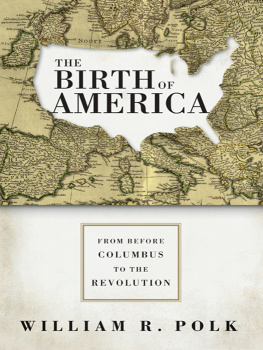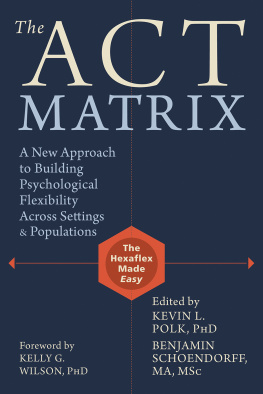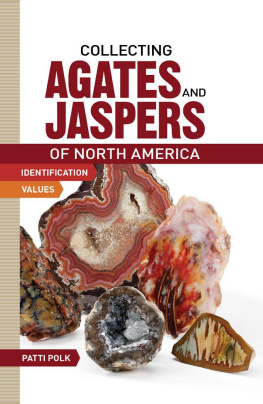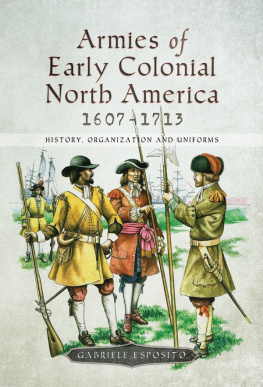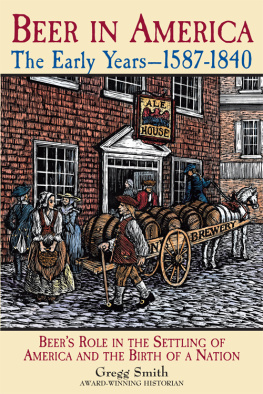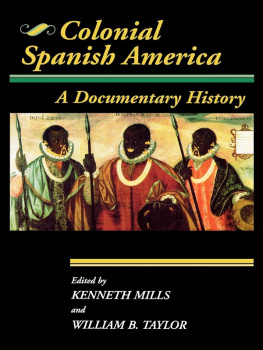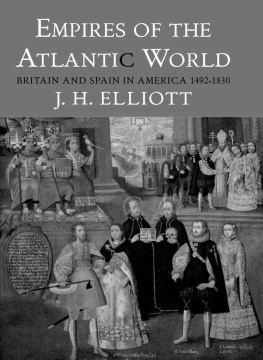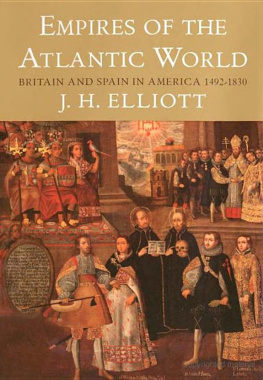WILLIAM R. POLK
T here was a time when people thought history was the past, uniform, unchanging, finished; but as with styles in clothing, personal appearance, and deportment, we now know our view of the past to be affected by shifting tastes and values. What one age thinks insignificant is thrust to the center by another, and what another age regarded as crucial may later seem trivial. New information is discovered, influences are traced to different causes, and new light is cast on the actors. History is caught in a cycle of rebirth, never completely to come to a final rest, always open to revision.
The first American historians began, understandably, to write about what was at hand. Each one set out the beginnings by drawing on materials in the language he knew: Englishmen, on what was available in English; Spaniards, in Spanish; Frenchmen in French; Dutchmen, in Dutch.
Sadly, no literate person knew enough of any Native American language to record the histories of the many societies of early America north of Mexico. To judge by what we know of similar societies elsewhere, myths, legends, and deeds were recited or sung. Like Homer in his account of the Trojan War, orators often froze their accounts by putting them into poetry or rhymed prose; probably American Indians did too. Others, the first American historians, used mnemonic devices, often patterned wampum belts or notched sticks, to help them remember. Some of the belts survive, but we cannot capture what they helped Indian historians recall. The best we can do is to reconstruct what might have been from the information we get from contemporary visitors, accounts from later times, comparative studies from other tribal peoples, and on occasion archaeology.
For the blacks who began to arrive in the New World in the sixteenth century, information is even more tenuous or distorted: this is not only because few Europeans were interested in the lives of people they treated as domesticated animals but also because by the time blacks settled in America, their diverse African cultural heritages were eroded or overlaid and the web of their traditional social relations had been shattered.
So what we now have, like all history, is imperfect, incomplete, subject to revision. We keep struggling to get what to us seems a better vision. This effort involves not only digging up more information and revising what we have but also seeking different angles of vision. It is in the angle of vision that I offer a modest contribution because, having spent most of my scholarly career studying Asia, Africa, and Europe, I approach American history from an external perspective. That is, of course, how most of those who came to the New World approached America, either driven by events in the Old World or conditioned by experiences there. I believe that this approach enriches the insights to be gained from a study of what happened in the New World. To illustrate this point, consider how colonists thought of the native peoples they encountered.
The initial attitudes of southern Europeans toward native peoples were shaped by their first ventures in colonialism, particularly in the Canary Islands. There, the Spaniards encountered a people known as the Guanche. We would describe them as having a more or less Neolithic culture, but so primitive did they appear that the Spaniards regarded them as mere animals. When the Guanche tried to prevent the Spaniards from seizing their lands, the Spaniards enslaved or exterminated them. Then, on reaching the Caribbean island of Hispaniola, where a score of primitive societies lived, the Spaniards treated these natives as they had the Guanche. And, as they spread out into Mexico and what they called La Florida, it was the Canaries-Hispaniola colonial model they followed. Ironically, had Columbus actually reached Cathay (China) or Chipango (Japan) as he had hoped, the model the Spaniards would probably have followed was not what they learned dealing with the Guanche but what they had been taught in their centuries-long complex relationship with the highly cultured Muslim and Jewish peoples of Muslim Spain, al-Andalusthat is, diplomacy interspersed with warfare but not genocide. Of course, they did not reach Cathay or Chipango, so it was the Guanche model they applied to Hispaniola, Mexico, La Florida, and, eventually, the North American West.
Meanwhile, the northern Europeans, particularly the English and those people who were to play such a crucial role in their colonies, the so-called Scotch-Irish, were learning the craft of colonialism in fighting the Irish. Since shortly after the Norman invasion of England in the eleventh century, the English had been trying to subdue, segregate, or exterminate the Irish. At the beginning of the seventeenth century, James I encouraged a large-scale migration of Scots to assist them. The Scots took to that task with ruthless vigor. Then, toward the end of the century, when many of them were ejected or frightened into moving across the Atlantic, the Scotch-Irish found the Native Americans much like the Irish in dress, housing, and lifestyle and began to treat them as they, and the English, had treated the Irish.
In these and many other ways, the habits of the Old World were formative in the New World. It follows that understanding them is crucial to an appreciation of early American history; so I begin my account of the birth of America at conception rather than delivery. What I particularly want to emphasize is that this book attempts to appreciate what came before in Europe and Africa; what role the Spaniards, French, and Dutch played before the British became the dominant white Americans; and, insofar as it is now possible to understand, how all these groups impacted upon and interacted with the Native Americans.
What of the Native Americans? Were they really comparable to the Guanche or the Irish? The answer is both obscure and complex: complex because the Native Americans were divided into hundreds of societies at various levels of cultural florescence, and obscure because none of those living in the areas that ultimately became the United States left written records. Consequently, we must derive what we can know of them from the observations of Europeans who were usually ignorant of their languages and hostile to their beliefs. Two exceptions are the Virginia planter Robert Beverley in the late seventeenth century and the surveyor-general of North Carolina, John Lawson, who visited Indians, saw how they lived, inquired about their beliefs, and then recorded them. Other than they, the most observant of the European reporters visited the native societies after their ways of life had been affected by difficult-to-estimate degrees of contact. Thus even the best accounts are seriously flawed, and flawed in ways we sometimes cannot judge.
From their earliest accounts it is clear that the British colonists, unlike the Spaniards, found the Indians worthy of respect. They observed Indians living in well-organized societies, comfortably adapted to their environment, healthy, and physically impressive. It was only as the immigrants learned how to feed themselves, grew in number, and overwhelmed their immediate neighbors that they began to hate and despise the Indians. Within a few generations, as they spread inland and increasingly took over Indian lands, they came to share the belief that the only good Indian is a dead Indian. So most of their observations can be used by historians only with extreme caution.

